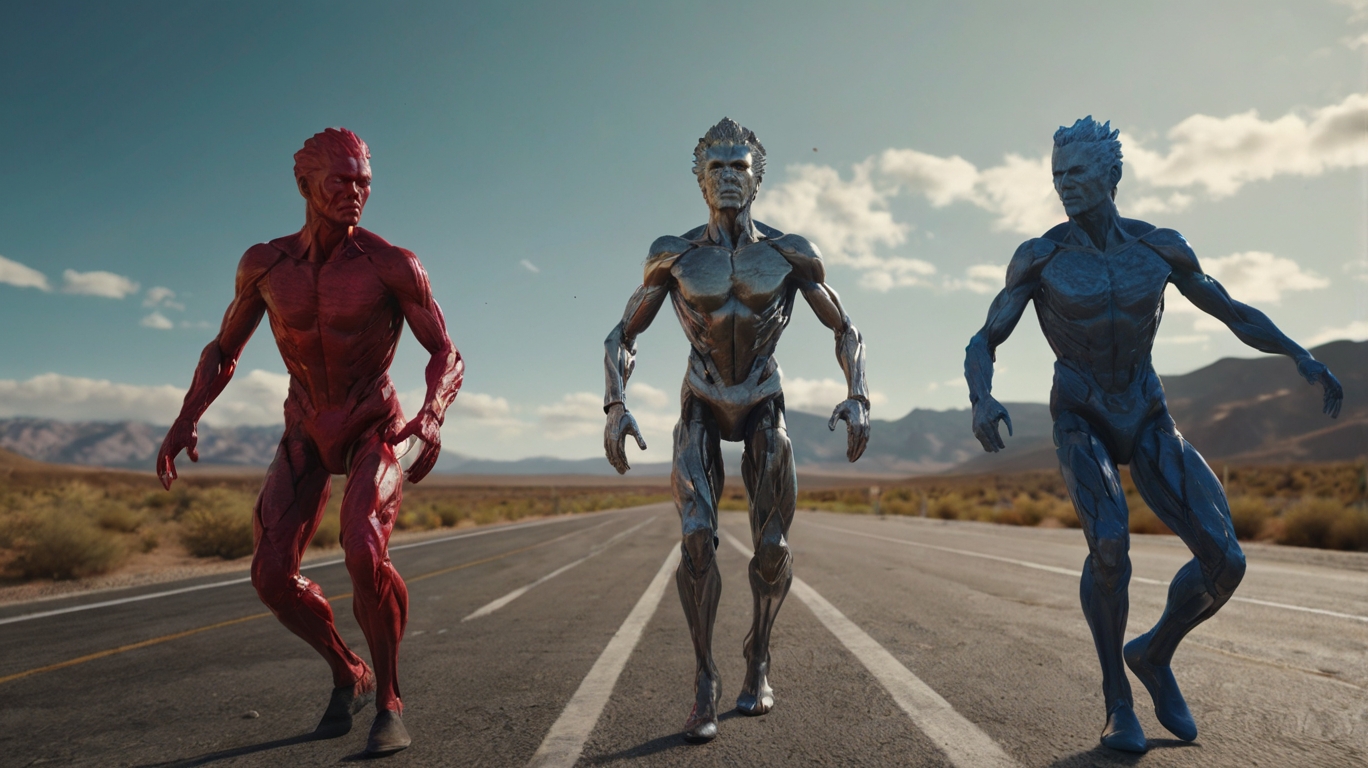
In the ever-evolving realm of immersive technology, XR (Extended Reality)—which includes Virtual Reality (VR), Augmented Reality (AR), and Mixed Reality (MR)—has rapidly transformed from a futuristic concept into a practical tool for gaming, education, healthcare, architecture, and beyond. When developing XR games, one of the most important decisions for developers is choosing the right game engine. Melior Games specializes in providing innovative interactive solutions. Choosing the perfect game engine for XR development is crucial for creators. To help you understand the situation and make an informed decision, this article analyzes the best engines — Unity, Unreal Engine, and Godot — based on important development characteristics.
1. Cross-Platform Support
Unity: Unity offers outstanding cross-platform support for XR development. Unity has strong integrations and export channels, regardless of whether you’re aiming for Oculus, HoloLens, Magic Leap, PlayStation VR, or smartphone AR (via ARKit and ARCore).
Unreal Engine: Unreal also supports a wide range of XR devices, especially for high-end VR. However, mobile AR support isn’t as seamless as Unity.
Godot: Godot has made strides in XR, but its support is still limited and best suited for experimental or independent XR projects.
Winner: One of the best options for both individual studios and enterprise-level projects is Unity because of its adaptability across XR platforms.
2. XR Development Toolkits & Plugins
Unity: With Unity’s XR and AR Foundation interworking platform, developers can build code once and run it on multiple XR systems thanks to powerful abstractions. It also has a huge library of third-party XR plugins in the Unity asset repository.
Unreal Engine offers a rich VR template and support through its XR platform, but its AR tools are somewhat limited compared to Unity’s optimized AR Foundation.
Godot: Although there are community plugins for XR, official tools are currently under development and not yet suitable for use on intricate projects.
Winner: Unity – Large toolkit maintains flexibility while speeding up development.
3. Graphics and Performance
Unreal Engine: This is where Unreal shines. Unreal’s AAA-class rendering process (Lumen, Nanite) produces photorealistic visuals, which makes it the perfect option for expensive virtual reality simulations.
Unity: While Unity may not match Unreal’s out-of-the-box graphics, it offers efficient rendering and high customization capabilities. Unity’s URP and HDRP pipelines provide scalable graphics across various XR hardware.
Godot: Even with Godot 4.0, graphics are becoming better, but they still fall behind the competition in terms of performance and XR-specific improvements.
Winner: Unreal Engine is ideal for VR projects that require a lot of visuals, particularly in simulation and architecture.
4. Ease of Use and Learning Curve
Unity: Unity is easier to learn for new XR developers thanks to its user-friendly interface, extensive documentation, and active community.
Unreal Engine has strong characteristics, but learning is more difficult. Visual scripting can be helpful, but comprehensive mastery requires a deeper understanding.
Godot: Although it is lightweight and simple to use, its XR capabilities are still in their infancy, which makes it challenging to produce intricate demos.
Winner: Unity is the perfect choice for most teams due to its balance of power and accessibility.
5. Community and Ecosystem
Unity: A large global community, thousands of tutorials, and a large resource store ensure you’re never stuck for long. Frequent updates support the latest XR hardware.
Unreal Engine: Also has a strong community, especially in the AAA and simulation sectors. Its open-source approach is a plus for power users.
Godot: a smaller, less active, but fervently open-source group in the XR space.
Winner: Unity – The ecosystem is second to none, especially for developers building XR experiences at scale.
Final Verdict: Unity is the Best All-Purpose Engine for XR
Despite Unreal’s superiority in ultra-realistic rendering, Unity is still the most adaptable, developer-friendly, and popular XR development engine. Its cross-platform capabilities, powerful tools, and active community make it the engine of choice for everything from casual AR apps to enterprise-grade VR platforms.
Ready to build your XR game? Let’s make it a reality.
At Melior Games, we’ve helped clients around the world turn their XR visions into immersive and immersive experiences using the power of Unity. If you have a concept for a mixed reality simulator, VR game, or AR teaching tool, our skilled developers are prepared to make it a reality.
Contact us today to start building your next-gen XR project with Melior Games.




